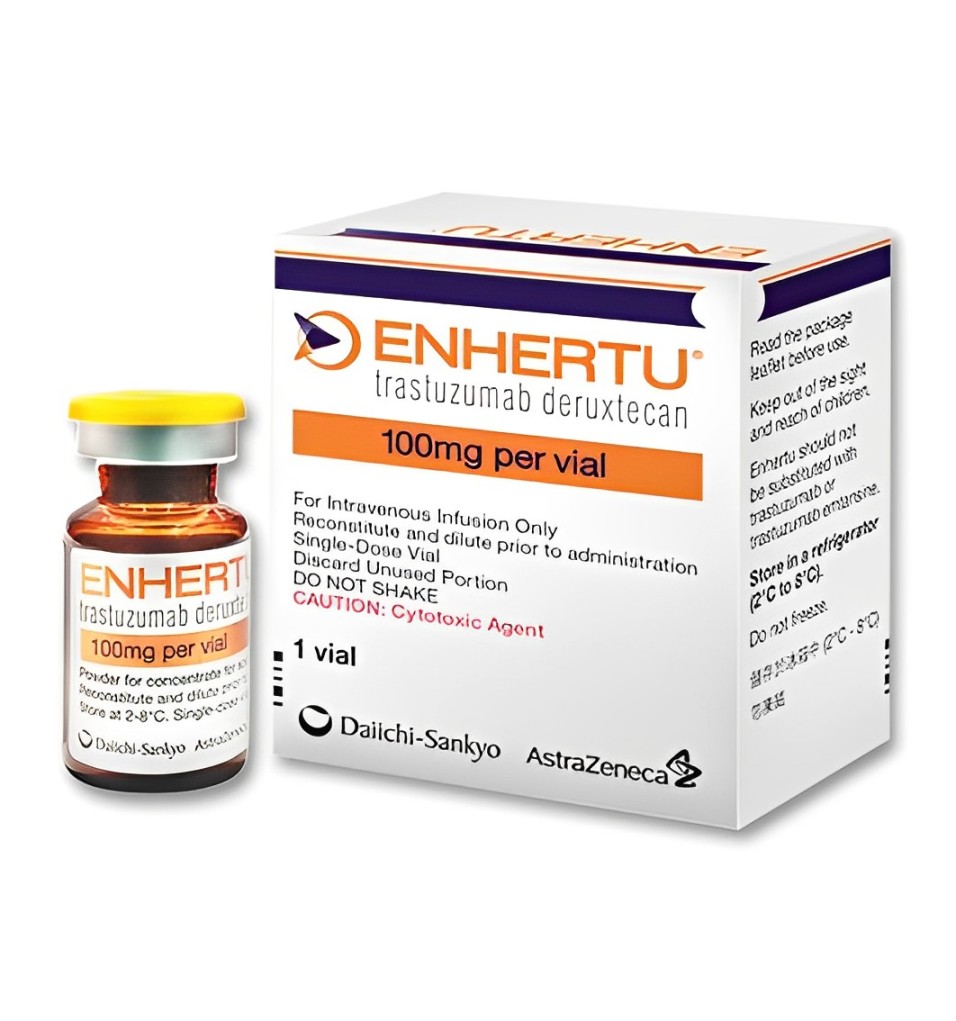FDA Grants Priority Review To Enhertu For Advanced HER2-Low Breast Cancer Patients
FDA accepts AstraZeneca and Daiichi Sankyo's Enhertu sBLA for HER2-low breast cancer with Priority Review.
Breaking News
Oct 01, 2024
Simantini Singh Deo

The U.S. FDA has accepted AstraZeneca and Daiichi Sankyo's supplemental Biologics License Application (sBLA) for Enhertu (trastuzumab deruxtecan) and granted it Priority Review. The application is for the use of Enhertu in treating adult patients with unresectable or metastatic HER2-low (IHC 1+ or IHC 2+/ISH-) or HER2-ultralow (IHC 0 with membrane staining) breast cancer who have previously undergone at least one round of endocrine therapy in the metastatic setting.
This decision is based on positive results from the DESTINY-Breast06 Phase III trial, which demonstrated Enhertu’s effectiveness compared to chemotherapy. Priority Review is reserved for treatments that could provide significant advances in safety, efficacy, or patient compliance. The FDA is expected to make its regulatory decision, known as the Prescription Drug User Fee Act (PDUFA) date, in the first quarter of 2025.
Enhertu was also recently granted Breakthrough Therapy Designation (BTD), an FDA process that expedites the development of therapies intended to address serious conditions with unmet medical needs. HR-positive, HER2-negative breast cancer is the most common subtype, comprising around 70% of all cases. Despite being classified as HER2-negative, a significant portion of these tumours still exhibit some HER2 expression. Studies suggest that up to 85-90% of tumours previously identified as HR-positive, HER2-negative may, in fact, be HER2-low or HER2-ultralow.
In the clinical trial, Enhertu demonstrated a 37% reduction in the risk of disease progression or death compared to chemotherapy, as assessed by blinded independent central review (BICR). The hazard ratio (HR) was 0.63, with a 95% confidence interval (CI) of 0.53 to 0.75, and the result was highly significant (p<0.0001). The median progression-free survival (PFS) for patients treated with Enhertu was 13.2 months, significantly longer than the 8.1 months observed with chemotherapy.
The results were consistent across patients with both HER2-low and HER2-ultra low expression levels. Among patients with HER2-low expression, Enhertu had a median PFS of 13.2 months versus 8.1 months for chemotherapy (HR 0.62; 95% CI 0.51-0.74; p<0.0001). In a prespecified exploratory analysis of patients with HER2-ultra low expression, Enhertu showed a median PFS of 13.2 months compared to 8.3 months for chemotherapy (HR 0.78; 95% CI 0.50-1.21). The safety profile of Enhertu in the DESTINY-Breast06 trial aligned with previous studies, and no new safety concerns were identified.
Enhertu is a precision-engineered HER2-directed DXd antibody-drug conjugate (ADC) developed by Daiichi Sankyo, in collaboration with AstraZeneca. Currently, Enhertu is approved in over 65 countries, including the U.S., for patients with HER2-low metastatic breast cancer who have previously undergone systemic therapy in the metastatic setting or experienced a recurrence within six months of completing adjuvant chemotherapy, based on data from the DESTINY-Breast04 trial.
Susan Galbraith, Executive Vice President, Oncology R&D, AstraZeneca, stated “While endocrine therapies are widely used in the initial treatment of HR-positive metastatic breast cancer, most patients see limited benefit with additional lines of treatment, and subsequent chemotherapy is associated with poor response rates and outcomes. The results from DESTINY-Breast06 show that Enhertu has the potential to evolve the current HR-positive treatment landscape and become the first targeted treatment for patients with HER2-low or HER2-ultralow expression following endocrine therapy.”
Ken Takeshita, Global Head, R&D, Daiichi Sankyo, mentioned, “This Priority Review highlights the potential to expand the existing indication of Enhertu in HER2-low metastatic breast cancer to include use in an earlier disease setting as well as in a broader patient population that includes HER2-ultralow. We look forward to working closely with the FDA with the goal of bringing Enhertu to more patients as quickly as possible.”
